With the passing of Lewis Murray Thomson on December 20, aged 88, the publishing world has lost a passionate champion who proudly flew the flag for Dundee.
For close on 70 years – 40 of them as a director and 10 latterly in a semi-retired ‘ambassadorial’ role – he put his accumulated knowledge to good use over coffee and shortbread.
Murray Thomson was a commanding and respected presence in the life and times of publishers DC Thomson.
Over seven decades in the industry he witnessed the passing of mechanised ‘hot metal’ processes and embraced the new world of printing when the human hand only intervenes to click a mouse.
His career took in the time three out of every five British women read the firm’s magazines and three out of four children its comics, to playing an influential role at the very edge of today’s publishing technology.
He was one of the first to recognise television as an opportunity for newspapers, not a threat.
He regarded the coming of the internet age in the same prescient way.
Murray Thomson followed family tradition
‘Mr LMT’, as he was affectionately known, followed his war-hero father Sidney into the business in 1957.
It was the year STV went on air, Andy Capp reached our newspapers, the Sky at Night our televisions – and George Moonie was pulled from the Beano editor’s chair to start up a new girls’ paper, The Bunty.
Following family tradition, Murray spent time visiting company operations, learning the ropes at postings in the firm’s Manchester, Glasgow and Fleet Street offices.
He returned to Dundee in the early 1960s, taking the Bank Street office once occupied by his director father, whom he remembered serving in the wartime Bank Street Home Guard.
In 1963 he was despatched to the United States to tour newspaper offices and printing press manufacturers, completing a report on his return which remains in the firm’s archives.
It was his last taste of freedom! In 1964 he married Margaret.
A move to Invergowrie followed, where they brought up their children John, Roger and Lynn.
Printing and publishing seemed a natural fit for Murray’s intuitive curiosity.
Eventually they became an abiding interest.
Murray Thomson embraced continuity, service and innovation
Along with his late brother Alastair – appointed DC Thomson directors on the same day in 1974 – he epitomised the qualities of continuity and service central to the firm’s values and traditions.
He also became a doughty defender of the company’s innovative instincts as it engaged with an increasingly connected world.
His experience and wise counsel during board discussions helped to steer the family business and its diversifying family of businesses to success after success.
He spent 10 years on the board of Central TV and fully embraced the digital epoch which followed.
He was involved in the purchase of several subsidiary companies, including, in 2006, Aberdeen Journals, the publishers of the Press & Journal and Aberdeen Evening Express.
This was one of a number of bold and timely decisions by the directors, which included the £20 million refurbishment of the firm’s Meadowside headquarters and a £25 million printing press at Kingsway.
It was the most advanced in Europe when it was hanselled by The Duke and Duchess of Rothesay (now King Charles and Queen Camilla) in 2013.
Jute is no more, jam is thinly spread.
But his contribution to journalism helped the company to prosper and innovate in the best traditions of its founding father, David Couper Thomson.
Murray Thomson was known for his scribbled story tip-offs and ‘scoops’
One of Murray’s early memories was returning from Merchiston School to attend DCT’s funeral in 1954.
Cuttings, clippings and bits and pieces always went home to Invergowrie, along with a daily ‘to do’ list scribbled on a scrap of paper – for others ‘to do’.
When that list emerged, there was no knowing the task required.
It might be 1500 words for the next day’s paper, or finding an answer to where he could get a bicycle clip repaired.
His inquisitive nose for a story and list of ‘scoops’ were renowned – as was his habit of scrutinising the DC Thomson papers with a magnifying glass the size of Jodrell Bank.
It was said that editors short of copy would engineer a corridor meeting with the purpose of gaining a tip-off from LMT’s news-gathering antennae.
Yet there was never a desire to influence or persuade, no muckraking or malice, and always more support than admonishment.
He had a wonderful capacity for constructive criticism, his desire only that stories were relevant, focused, timely, readable, presentable and, of course, accurate!
His documentary eye and helpful corps of retiree contacts were deployed only to keep our bar high.
In support of his scrupulous eye for accuracy and detail, he would recall The Courier story which described a retired general as a bottle-scarred veteran – instead of battle-scarred.
An apology was published. This time it went in as battle scared. Or so he said.
Murray Thomson had an ‘open door’ policy
Always busy, always interested, he was known for long hours at his desk, door open, one eye on comings and goings, always at the ready for drop-in visitors.
Everyone was of interest to him, and he was a mentor and sounding board to many of those entering the business.
Unsolicited acts of kindness were plentiful as he made new friends.
After his retiral the lunches and coffees continued with the loyal army of company retirees whom he counted among his friends.
Some went back half a century.
Amenable, approachable, helpful, supportive and ever generous with his time, he seldom passed anyone without asking how they were, or where they had been on holiday.
Generations of staff regarded ‘Mr Murray’ with deep affection and his ice-breaking skills with new employees were a lesson to all.
This has been reflected in the many tributes already reported by The Courier since his passing.
Snowy-haired and endearingly smartly dressed, he kept a selection of ties close by the door of the house, ready to take one on his way out.
Widely respected, he enriched all with his far-reaching knowledge of, and passion for, the publishing industry and life generally.
A force of nature away from the office
Mr Murray also loved ski-ing, squash, golf, walking and gardening.
He preferred bikes to cars and it took a small hurricane to stop his two-wheel peregrinations.
Well into his 80s he conquered precipitous climbs while never giving a thought to loosening his tie or top button.
He spoke knowledgably on sport, but always came off second best to older sister Julie.
A family man through and through, he was predeceased by Alastair and Julie.
He proudly and happily shared his latter years with Margaret in Invergowrie, with his children John, Roger and Lynn, and with his beloved grandchildren and the wider Thomson family.
He will be warmly remembered by about half of Dundee, and by many beyond.










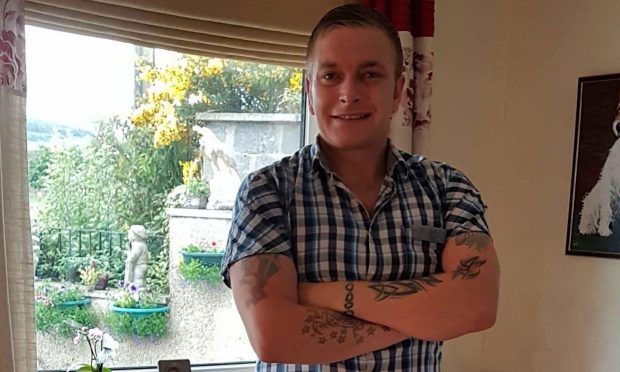
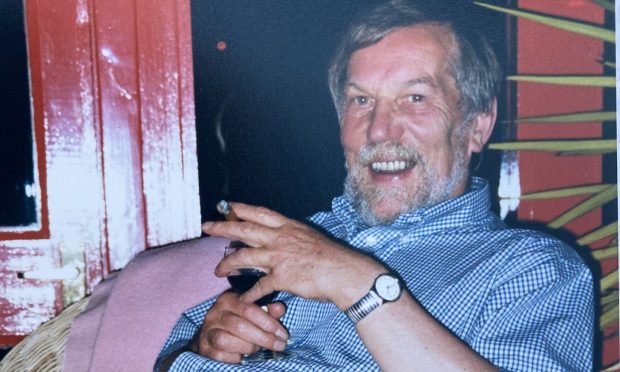
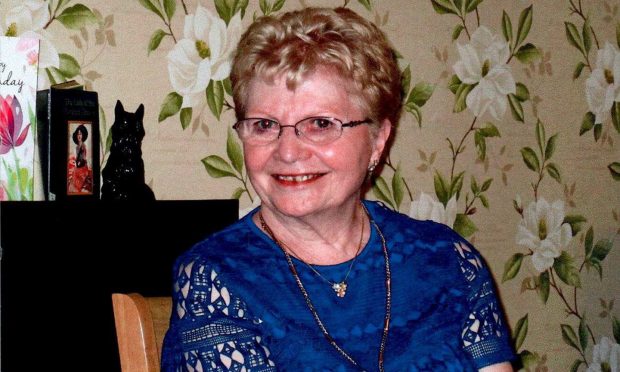


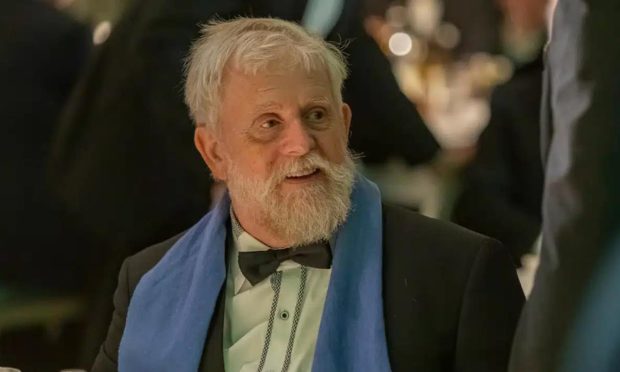


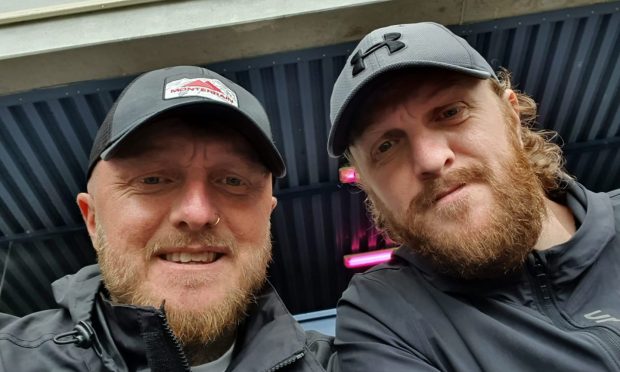
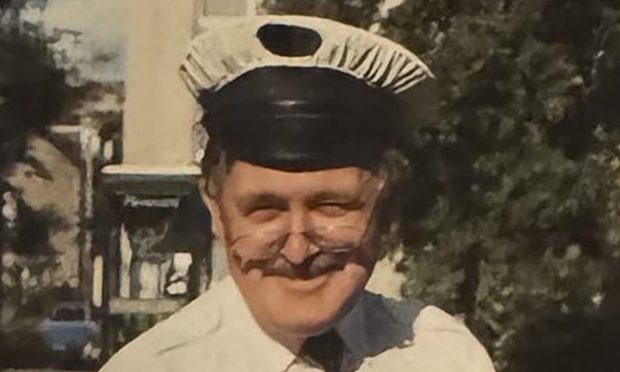
Conversation